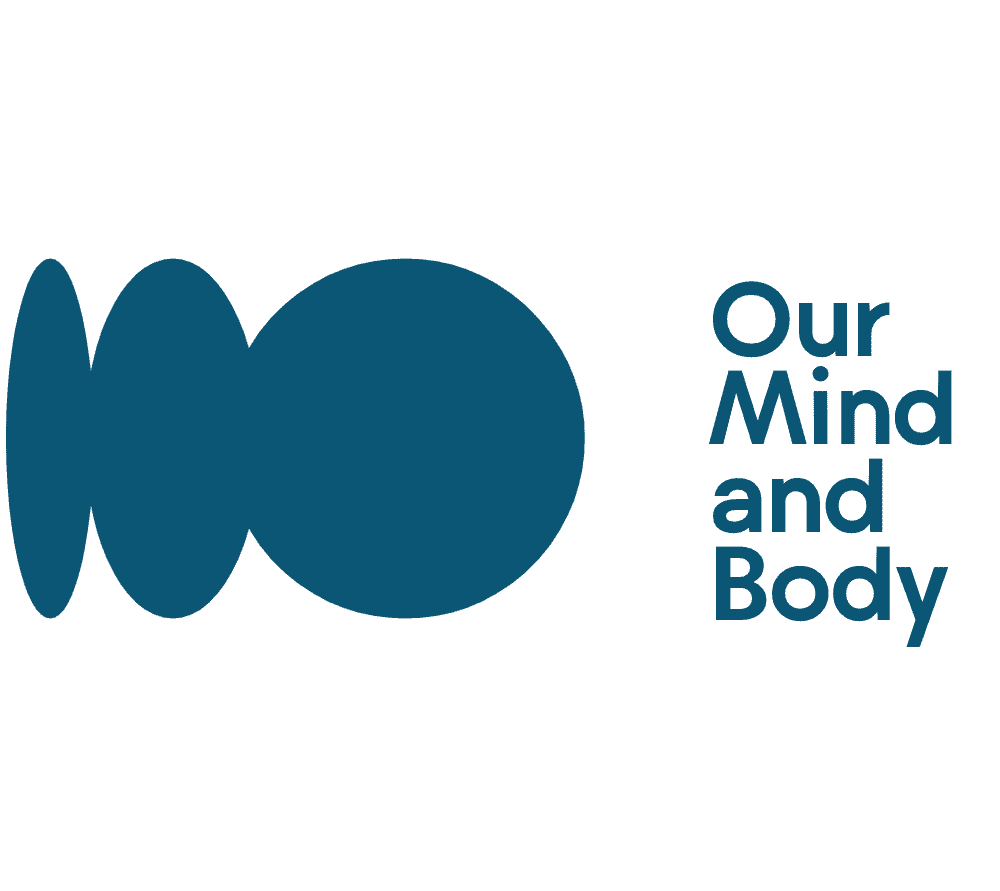Personal Growth
Mastering Stress: Understanding Triggers and Personal Coping Mechanisms for a Balanced Life

Many of us view stress in a negative light, but it can also have its benefits. Stress is how our body reacts when we encounter challenges or feel overwhelmed by life events. Psychologically, stress is when a person perceives their environment as threatening or challenging. In response, individuals may experience physical and mental reactions like heightened alertness, anxiety, strong emotions, and changes in bodily functions such as increased heart rate and muscle tension.
It is important to remember that everyone experiences different levels of stress at various points in their lives; what may seem trivial for one person could cause extreme distress for another. As each individual has unique coping mechanisms and resources available to them, how they handle stressful situations differs greatly from person-to-person. That being said, understanding our own personal triggers is an integral step towards actively managing stressors before they become overwhelming. With this insight into ourselves firmly established, we can move on to explore potential sources of stress that may affect us all.
Sources Of Stress
Stress is a normal part of life and can come from many sources. It may be caused by work, finances, personal relationships, family responsibilities or the environment around us. Understanding where your stress comes from can help you find ways to actively cope with it instead of letting it consume you. Let’s take a look at some common sources of stress:
- Workplace Stress – This type of stress tends to stem from feeling overwhelmed or undervalued in the workplace. You might feel like you don’t have enough time to complete tasks or that other people are not listening to what you say.
- Financial Stress – A lack of money often leads to financial worries like mounting bills, debt payments, and budgeting issues which can lead to feelings of anxiety and depression over time.
- Personal Relationships – Difficulties within your intimate relationships such as misunderstandings or communication problems can cause a lot of tension and upset throughout both parties involved including family members and friends alike .
- Family Stress – Taking care of children or elderly relatives as well as trying to maintain a positive relationship with extended family members can create an immense amount of pressure on individuals and their households causing them distress in the process..
- Environmental Stress – Exposure to intense noises, extreme temperatures, overcrowded areas, air pollution etc., all contribute towards our bodies becoming overloaded with toxins leading to physical ailments down the line if left untreated.
Now that we’ve looked at the various causes for stress let’s move onto exploring how this affects our bodies when faced with these difficult situations…
Impact Of Stress On The Body
The impact of stress on the body is a powerful one. Stress can cause physical and psychological symptoms, many of which are hard to ignore. It can take its toll in insidious ways that you may not be aware of until it has caused serious damage. Let’s look at some of the most common physical effects of sustained stress:
| Physical Symptoms | Stress-Related Illnesses | Stress-Induced Fatigue |
|---|---|---|
| Headaches | Heart Disease | Mental Exhaustion |
| Insomnia | High Blood Pressure | Loss of Focus |
| Stomach Aches | Diabetes | Decreased Motivation |
When we experience prolonged periods of stress, our bodies start to suffer from the physiological impacts. We tend to feel tired all the time, have difficulty concentrating, and sometimes even forget important tasks or commitments due to mental exhaustion. Our immune systems become weakened, leaving us more susceptible to minor illnesses such as colds and flu; while major illnesses like heart disease or diabetes might result if left unchecked for long enough. Other physical manifestations include headaches, stomach aches and insomnia – none of which should ever be underestimated when considering their potential cumulative effect on your overall health.
The key takeaway here is that it’s vital to recognize the signs of stress early so that countermeasures can be taken before it spirals out into something worse – because prevention is better than cure! Taking steps towards reducing stress levels will help protect against fatigue, illness and other health issues related to high levels of tension and anxiety. From there we can move onto exploring how best to manage those feelings effectively; utilizing helpful strategies to cope with life’s challenges in an informed manner.
Symptoms Of Stress
When you’re feeling overwhelmed and unable to cope with life’s challenges, it can be difficult to identify the source of your stress. However, understanding how stress manifests in our lives is an important step towards actively dealing with it. Stress can present itself through a variety of physical, mental, emotional, and fatigue symptoms.
Anxiety symptoms often accompany overwhelming feelings of stress. These may include racing thoughts that make concentration difficult; muscle tension; restlessness or irritability; trouble sleeping; worrying about things beyond your control; difficulty making decisions; and avoiding activities which used to bring joy. Mental symptoms can also arise due to too much stress such as memory problems, difficulty focusing on tasks at hand, poor judgment or lack of creativity.
Emotional signs are equally common when dealing with stressful situations. They range from feeling lonely or isolated even when surrounded by people to mood swings, frequent crying spells for no apparent reason, and excessive fear over minor issues that wouldn’t normally cause distress. Physical symptoms usually manifest as headaches/migraines, changes in appetite (overeating or not eating enough), low energy levels accompanied by exhaustion and fatigue, chest pain, rapid heart rate increase etc.
Recognizing these various indicators of stress is essential if we wish to effectively manage them so we can move forward in life without being weighed down by our worries and anxieties. Differentiating between good and bad stress will allow us to accept the unavoidable pressure while striving towards better decision-making capacity when faced with challenging circumstances.
Differentiating Between Good And Bad Stress
“It is important to differentiate between good and bad stress. As the saying goes, ‘a little pressure can be a good thing.’ Good stress helps us stay motivated, engaged in our goals, and focused on the task at hand. Bad stress, however, can overwhelm us and make it difficult to cope with life’s challenges. In order to effectively recognize and distinguish between types of stress, we must first understand what causes them.
Our bodies respond differently depending on the type of stress that we’re experiencing. Good stress often manifests as excitement or anticipation while bad stress may cause physical symptoms such as headaches or chest pain. Additionally, good-stress tends to have a positive outcome whereas bad-stress has negative consequences for both physical and mental health. It is also important to note that excessive amounts of either kind of stress can lead to burnout over time if not managed properly.
Identifying your personal triggers for each type of stress will help you better manage how you approach challenging situations moving forward. By understanding which kinds of environments create more beneficial or detrimental reactions within yourself, you’ll be able to adjust accordingly and remain emotionally balanced.”
Identifying Your Personal Triggers
Now that we have discussed the differences between good and bad stress, let’s move on to how you can identify your personal triggers. Being able to pinpoint what causes our stress levels to rise is an important first step in actively dealing with it. In order to do this, there are a few things you should keep in mind:
- Understanding Ourselves:
- Take some time to reflect on past experiences and take note of events or patterns that may have led to a heightened state of anxiety.
- It’s also helpful to be mindful of any physical reactions or feelings that come up when faced with certain situations, such as feeling overwhelmed or panicked.
- Consider if any thoughts occur during these times that could be contributing factors – for example, worrying about not having enough time or being judged by others.
- Identifying Triggers:
- Once you have identified potential causes of distress, it’s time to start looking for patterns within them. This will help us better understand which areas need extra attention and care from us so we can set ourselves up for success.
- Think about common themes that appear across different scenarios – like perfectionism, control issues or fear of failure – and make note of them as they arise throughout your day-to-day life.
- Spotting Stressors:
- Now that you know what kind of thoughts or feelings lead to increased stress levels, try spotting them before they fully manifest themselves so you can act quickly if necessary.
- If something starts making you feel tense or anxious, pause for a moment and think back over recent events or conversations leading up to this point – often times we can trace back what triggered the response more quickly than expected!
By being aware of our own behavior and recognizing where our energy goes when confronted with challenging situations, we can begin taking action towards reducing our stress levels through targeted strategies catered specifically towards our needs
Strategies For Reducing Stress Levels
When it comes to coping with life’s challenges, pinpointing the cause of stress can be a great first step. But what then? How do we actively deal with this stress in our lives and lower our overall tension levels? There are many strategies that can help us reduce our stress so that we may better manage difficult situations.
First and foremost, taking time out for yourself is essential when looking to minimize anxiety. Taking breaks throughout your day or even going on vacation can allow you to take some distance from the stressful situation and clear your mind of any worries. This could mean reading a book, engaging in an activity you enjoy such as sports or writing, or simply spending quality time with family and friends. Additionally, doing things like yoga or meditation can also be very effective at alleviating pressure and calming one’s nerves.
Another important tip for lowering stress is learning how to prioritize tasks more effectively. We all have obligations but sometimes accepting that there are only 24 hours in a day can really make a difference in terms of attaining realistic goals without feeling overwhelmed by them. It’s okay if everything doesn’t get done right away; focus instead on getting the most pressing items off your plate first before tackling anything else. And don’t forget to reward yourself after each successful task!
These strategies should put you well on your way towards reducing your stress levels – now let’s move onto discussing specific techniques for dealing with the various aspects of life’s challenges…
Coping Techniques
When it comes to coping with life’s challenges, pinpointing the source of your stress is essential for being able to actively deal with it. To help you cope, here are some strategies and techniques that can be used to manage stressful situations:
| Coping Strategies | Stress Relief |
|---|---|
| Exercise | Breathing |
| Journal Writing | Listening to Music |
| Talking It Out | Meditation |
| Self Care | Social Support |
Exercise has been found to be one of the most effective ways to reduce stress levels; even a simple walk around the block can offer temporary relief. Keeping a journal or diary gives you an outlet for expressing yourself in writing while also allowing you track how your feelings change over time. If talking out loud helps more than writing, then find someone who will listen – whether they’re a close friend, family member or therapist – so that you can share what’s on your mind in order to gain clarity. Lastly, don’t forget about taking care of yourself by engaging in activities that bring joy and relaxation back into our lives such as reading a book, cooking something yummy or simply getting enough sleep every night. Additionally, having emotional support from friends and loved ones is just as important when it comes to dealing with life’s challenging moments.
It’s important to remember that these coping strategies are not meant as substitutes for professional help if needed but rather tools that serve their own purpose in helping us better understand ourselves and manage our stress levels more effectively.
Professional Help For Stress Management
When it comes to dealing with life’s challenges, seeking professional help can be a great way to manage stress. Take the case of John, for example – he had been experiencing increased levels of anxiety due to his high-pressure job and was struggling to cope with the demands that were placed on him. After consulting a mental health counselor and attending regular therapy sessions, John was able to identify the root cause of his stress and learn new relaxation techniques which enabled him to tackle this problem head-on.
While some may feel uncomfortable about asking for help from professionals, there are many benefits associated with doing so. Professional help is designed specifically for managing stress and understanding how best to deal with its symptoms. Mental health counselors will work closely with you to pinpoint your causes of stress while providing support in finding ways to actively address them. This kind of tailored assistance helps ensure that you have all the tools necessary to effectively cope with life’s challenges.
Therapy sessions are also beneficial as they provide an opportunity for reflection and self-discovery; allowing individuals time and space away from their everyday routines in order to process what is causing them distress. Through these therapeutic conversations, clients often gain valuable insight into themselves which can be used as motivation when tackling difficult emotional issues or navigating stressful situations going forward.
With personalized guidance from a trained professional, along with relaxation techniques such as mindfulness meditation or yoga practice, people can begin actively dealing with their sources of stress rather than trying in vain to avoid them altogether. Taking proactive steps towards addressing your own needs is one powerful step towards improved well-being in both body and mind.
Benefits Of Dealing With Stress Proactively
It is essential to be proactive about stress management in order to reap the many benefits associated with successful stress reduction. Managing your stress proactively not only helps you cope more effectively with difficult situations, but it also has a positive impact on physical health and mental wellbeing. When we identify our sources of stress and develop effective strategies for managing them, we can experience greater levels of peace, joy and contentment in life.
One benefit of proactive stress management is that it gives us a sense of control over our lives. We are able to take ownership of our emotions and reactions so that we don’t rely solely on external circumstances or other people’s opinions to dictate how we feel. This increases our self-confidence as well as providing us with an improved ability to make decisions without being distracted by negative thoughts or feelings.
Proactive stress management also allows us to better manage our time and resources, enabling us to carry out activities efficiently while avoiding unnecessary tasks or commitments which may add additional burden or pressure. With this mindset, it becomes easier to prioritize important matters rather than becoming overwhelmed by the minor details which ultimately drain energy and motivation from achieving goals.
Adopting healthy habits such as regular exercise, relaxation techniques like meditation or yoga, and engaging in enjoyable activities are all effective ways of reducing stress levels over time. These methods help keep your mind active so that when challenges do arise they can be approached with clarity and discernment instead of fear or anxiety. If managed correctly, dealing with life’s challenges can become less daunting experiences allowing you to more fully enjoy each day despite any difficulties encountered along the way.
Frequently Asked Questions
What Are Some Common Signs Of Stress?
When it comes to recognizing signs of stress, everyone experiences different symptoms. It is important for us all to be aware of the most common indications that can signal a potential issue with our mental health. Anxiety Symptoms, physical stress indicators, emotional and mental distress signals are all key warning flags you should pay attention to in your daily life.
As someone who works as a mental health counselor, I have seen first-hand how people react differently when they experience anxiety or burnout from their lives. For example, one client I had shared with me that he felt constantly overwhelmed by his workload and was unable to focus on any task for more than a few moments at a time. This overwhelming feeling is just one of many physical signs of stress – others include headaches, fatigue and muscle tension. Additionally, some may find themselves having difficulty sleeping through the night due to worrying thoughts running through their head; this is an indicator of emotional and mental strain.
It’s also very important to look out for other signs such as changes in appetite or eating habits, increased smoking or drinking alcohol consumption and avoidance behavior like staying away from social interactions. All these symptoms are indicative of something deeper going on inside oneself – which needs addressing if we want ourselves to be able handle the challenges that life throws at us effectively.
By paying close attention to our bodies and minds we can start taking steps towards managing our stress levels before things get too out of control. Being proactive about recognizing these issues will help us take charge over our well-being so that we can continue living full lives without fear or doubt holding us back.
Are There Any Lifestyle Changes I Can Make To Reduce Stress?
It can be overwhelming to deal with life’s challenges, and stress is a common reaction. Fortunately, there are some lifestyle changes you can make that will help reduce your stress levels. When it comes to managing the effects of stress, it’s important to understand which strategies work best for you:
Stress management techniques include identifying potential triggers and trying to adjust your behavior in order to avoid or limit their impact on your wellbeing. This might mean learning how to change stressful patterns by changing the way you respond when faced with certain situations. Additionally, engaging in activities such as mindfulness exercises, yoga or meditation may also prove beneficial in reducing stress and helping create healthier habits over time.
Lifestyle adjustments for stress relief are another great way to manage the effects of stress. You should consider making small changes like maintaining regular exercise routines or getting enough sleep each night. Eating healthy meals regularly and avoiding over consuming caffeine or alcohol can also help keep our bodies feeling relaxed and energized throughout the day. Additionally, taking breaks from work during the day or using calming music at home can provide much needed moments of respite from everyday pressures so that we don’t get overwhelmed easily. Finally, here are three simple things you can do daily for stress relief:
- Spend 10 minutes outside every day;
- Take deep breaths before responding to something triggering;
- Make time for yourself even if it is just 15 minutes per day.
These tips serve as a starting point towards gaining control over stressful situations through lifestyle adjustments that have been proven effective in managing stress levels. As a mental health counselor/therapist I highly recommend experimenting with different approaches until you find what works best for you – this could involve anything from increasing physical activity to talking more openly about personal issues with friends or family members who offer support and understanding. Whatever path you choose, remember that everyone experiences different scenarios differently – focus on finding ways that make sense for your own individual needs!
How Can I Tell If I Need Professional Help For Stress Management?
Struggling with stress? It can be hard to know when it’s time to seek outside help. To figure out the best next steps for managing your mental health, here are some tips and techniques to consider.
Firstly, take a step back and assess what kind of stress relief techniques you’ve already tried. If you feel like nothing is working or that your stress levels remain too high despite various attempts at self-care, it may be time to explore professional options such as seeking counseling or therapy. Here are three signs that could indicate the need for additional support:
- You have difficulty controlling your emotions on a regular basis
- Stress has started impacting other aspects of life, such as relationships or work/school performance
- Your coping strategies become increasingly unhealthy or destructive
Mental health professionals don’t just offer advice and guidance; they also provide invaluable insight into how we think and process our experiences. Understanding these underlying motivations can give us the tools to better handle stressful situations in the future. Seeking counseling or exploring various forms of therapy aren’t easy steps to take but they can make a world of difference by helping us identify our unique triggers and create healthier ways of responding.
If you’re feeling overwhelmed by life’s challenges and fear that traditional methods won’t suffice, remember that there are plenty of resources available to assist you on this journey. Don’t hesitate to reach out – talking about matters openly, especially with someone who specializes in understanding human behavior, can bring much needed clarity during difficult times.
What Are Some Examples Of Good Stress?
When it comes to stress, we often think of the negative impacts that it can have on our lives. However, there are also some positive aspects of stress and examples of good stress. Good stress or ‘eustress’ is a type of short-term pressure that can help us stay motivated and focused. Here are some key points about healthy stress:
- It gives you an adrenaline rush
- It helps motivate you to get things done
- It pushes you out of your comfort zone
As mental health counselors, it’s important for us to be aware of the benefits of positive stress – when used in moderation – as well as how to identify signs of unhealthy amounts. Positive stress can provide us with energy and motivation while helping us become more productive. For example, when facing a challenging task like studying for a test or preparing an important presentation at work, feeling stressed could actually encourage us to work harder and perform better than if we weren’t feeling any pressure at all! On the other hand, too much stress can lead to burnout, anxiety and depression which is why recognizing the difference between beneficial and unhelpful types of pressure is essential for living a balanced life.
It’s important for us to understand what makes up healthy levels of eustress so that we can recognize it in ourselves and others around us. We want people to feel energized by their goals instead of overwhelmed by them; ultimately finding ways to turn stressful situations into constructive ones. By understanding how different kinds of pressures affect our daily lives, we’re better equipped to manage them effectively – leading healthier lifestyles overall!
How Can I Identify My Own Personal Triggers For Stress?
Identifying your own personal triggers for stress can be an important part of managing stress levels. Stressors are different for everyone, so it is essential to take the time to understand what causes you distress and why. Here are some tips to help you identify the sources of your stress:
- Keep a log or diary – Writing down any events that cause you anxiety can help you track patterns in your behavior and responses.
- Identify unhealthy coping mechanisms – If there are certain activities or behaviors that make you feel better temporarily but worsen feelings over time, these may be indicators of underlying stressors.
- Reflect on stressful situations – Take the time to think about how particular circumstances made you feel so that you can start recognizing potential triggers more quickly in the future.
- Talk to someone else – Talking openly with a trusted friend or family member about what stresses you out can provide insight into identifying common themes in your life that might be causing tension or worry.
As a mental health counselor, I encourage my clients to become aware of their individual triggers for stress by reflecting on and understanding their unique experiences and emotions surrounding them. By doing this they will gain better control over their thoughts and reactions when faced with similar situations in the future and learn healthier ways of dealing with them proactively rather than reactively. It’s also important to remember that while emotional awareness is key, self-care should always come first; engaging in healthy habits such as exercise, meditation, leisure activities, etc., can go a long way towards reducing symptoms associated with high levels of stress or anxiety.
Conclusion
It’s important to recognize that life can be hard and stressful. That doesn’t mean you’re weak or a failure – it just means you need to take the time to identify your cause of stress, so you can actively deal with it. Taking the steps to understand your triggers for stress is an essential part of learning how to cope. You may not always have control over what happens in life, but you do have power over how you react.
When dealing with challenging times, remember that any effort put into managing your stress will pay off in terms of both physical and mental wellbeing. Take small steps towards making positive lifestyle changes, like getting enough rest and exercise, eating healthily, and maintaining relationships with people who support you. These are all great ways to reduce stress levels and build resilience when facing difficult situations.
Finally, don’t forget that there is nothing wrong with seeking professional help if needed. Remember: a little self-care goes a long way! Don’t be afraid to reach out if things become too overwhelming – our team at [MENTAL HEALTH PROVIDER] would love to hear from you anytime.
Meet Kalinda, the passionate and visionary Editor-in-Chief of OurMindAndBody.com. Kalinda is a beacon of light in the realm of holistic well-being, and her mission is to positively impact the lives of others by inspiring them to embrace a healthier and more fulfilling lifestyle.
With a deep-rooted love for meditation, yoga, and spirituality, Kalinda’s journey toward self-discovery and personal growth started at a young age. She found solace and strength in these practices, which not only helped her cope with the challenges of life but also provided her with a profound sense of purpose. Eager to share the transformative power of these ancient disciplines, Kalinda embarked on a path to spread awareness and understanding.
Personal Growth
The Spiritual Significance Of Shooting Stars: Meaning And Symbolism

Have you ever gazed up at the night sky and witnessed a meteor streaking through the darkness? It’s a moment that mesmerizes us and fills us with wonder and awe.
Shooting stars, both scientifically and spiritually, hold a profound significance. Scientifically, they provide valuable insights into the history and composition of our universe.
But beyond the realm of science, shooting stars carry a deeper, more spiritual meaning. In this article, we will explore the spiritual significance of shooting stars, delving into their symbolism and the profound impact they can have on our lives.
Key Takeaways
- Seeing a shooting star spiritually is believed to bring good luck and positive energy
- Many cultures associate shooting stars with messages from the spiritual realm or the universe
- Shooting stars are often interpreted as a sign of new beginnings or endings
- Symbolic meanings of shooting stars include new ideas, wishes, dreams, and spiritual journeys
What are shooting stars?
I’ve learned that shooting stars are natural phenomena caused by debris from space entering the Earth’s atmosphere, and they burn up, creating a bright streak of light across the sky.
It’s fascinating to think about the mythological origins and cultural beliefs surrounding shooting stars. In many cultures, they are seen as messages from the spiritual realm or the universe. Some believe that seeing a shooting star spiritually brings good luck and positive energy, while others associate them with new beginnings or endings.
The symbolic meanings attached to shooting stars can vary widely, depending on individual perspectives and cultural beliefs. For some, they represent wishes, dreams, and spiritual journeys. Others may see them as signs of transformation, growth, or even bad luck.
Regardless of the interpretation, witnessing a shooting star always leaves a lasting impression, igniting a sense of wonder and awe in those fortunate enough to see one.
Scientific explanation
Astronomers study shooting stars using telescopes and instruments to provide a scientific explanation for the phenomenon. Through the exploration of shooting stars, scientific research on shooting stars has revealed fascinating insights into the celestial world. Here are four key findings:
-
Understanding celestial body movement and composition: By studying shooting stars, scientists gain valuable knowledge about how celestial bodies move and their composition. This research helps piece together the history of our Solar System.
-
Insights into the formation of celestial bodies: Analyzing the fallen meteors from shooting stars allows scientists to determine the age and make-up of the Solar System. This information provides valuable insights into the formation of celestial bodies.
-
Unveiling the evolution of the Solar System: Meteor composition analysis sheds light on the evolution of the Solar System. By studying shooting stars, scientists can understand the presence of certain elements in space and gain a deeper understanding of the Solar System’s evolution.
-
Enhancing appreciation for the phenomenon: Understanding the scientific explanation behind shooting stars enhances our appreciation for this awe-inspiring phenomenon. It allows us to marvel at the beauty of shooting stars while also acknowledging the immense knowledge that scientific research has provided.
Regular occurrence
During meteor showers, I love to search for shooting stars in the night sky. It’s a magical experience that fills me with wonder and awe. To make the most out of these celestial events, it’s important to know the meteor shower dates and the best locations for stargazing. Meteor showers happen regularly throughout the year, with the Perseids meteor shower being one of the most well-known, occurring in August. But there are many other meteor showers that take place annually, each with different levels of activity. To increase your chances of seeing shooting stars, find a location away from city lights for better visibility and choose a spot with an unobstructed view of the sky. By being patient and allowing your eyes to adjust to the darkness, you can fully immerse yourself in the beauty of these shooting stars.
Importance of meteor composition analysis
Analyzing the composition of fallen meteors is crucial for understanding the age and make-up of the Solar System. Meteor shower analysis provides valuable insights into the formation of celestial bodies and the evolution of our Solar System.
By studying the chemical composition of these fallen meteors, scientists can unravel the mysteries of our planetary system. It reveals information about the presence of certain elements in space and helps piece together the story of celestial body formation.
This analysis not only enhances our understanding of the Solar System but also deepens our appreciation for the beauty and complexity of the universe. It is through the study of meteor composition that we gain a glimpse into the vastness and wonder of the cosmos, igniting a sense of inspiration and awe within us.
Tips for observing
To enhance your experience of observing shooting stars during meteor showers, it is helpful to find a location away from city lights for better visibility. The best locations for stargazing are usually in remote areas where light pollution is minimal. Choose a spot with an unobstructed view of the sky to maximize your chances of seeing shooting stars.
It’s also important to be patient and allow your eyes to adjust to the darkness. Additionally, if you’re interested in capturing the beauty of shooting stars through photography, there are a few tips to keep in mind. Use a tripod to keep your camera steady, set a wide aperture to let in more light, and use a long exposure to capture the movement of the shooting stars.
With these tips, you can fully immerse yourself in the awe-inspiring experience of witnessing shooting stars during meteor showers.
Positive spiritual beliefs
Experiencing a shooting star fills me with a sense of positivity and brings a feeling of good luck and possibility. It’s as if the universe is sending a message of encouragement and reminding me of the infinite potential within myself.
When I see a shooting star, I take a moment to reflect and express gratitude for the blessings in my life. I then set positive intentions for the future and visualize my dreams and desires manifesting into reality. This act of manifestation is a powerful spiritual practice that helps me stay focused on my goals and allows me to attract the positive energy needed to achieve them.
It’s a reminder that I have the power to create my own destiny and that the universe is conspiring in my favor. So, the next time you witness a shooting star, take a moment to embrace its positive energy and utilize it as a catalyst for your own personal growth and transformation.
Negative spiritual beliefs
When I witness a shooting star, it fills me with a sense of unease and foreboding, as if it is a sign of impending doom or misfortune. In many cultures, shooting stars are associated with negative meanings and superstitions. Some believe that seeing a shooting star is a symbol of death or a bad omen. These beliefs stem from ancient superstitions and cultural interpretations passed down through generations. The idea of a shooting star representing the end of something or a warning of impending tragedy can be deeply ingrained in our subconscious. This negative symbolism attached to shooting stars serves as a reminder to cherish the present moment and appreciate the blessings in our lives. It encourages us to reflect on our actions and make positive changes to avoid any potential negative outcomes.
| Negative Symbolism | Superstitions about Shooting Stars |
|---|---|
| Death | A sign of impending tragedy |
| Misfortune | Bad luck associated with shooting stars |
| Omen | A warning of negative events |
| Impending doom | A sense of foreboding and unease |
Reflection and gratitude
After witnessing a shooting star spiritually, it is natural to be filled with a sense of wonder and awe. The beauty and fleeting nature of these celestial phenomena leave a lasting impression on our hearts and minds.
As I reflect on the spiritual significance of shooting stars, I am reminded of the importance of gratitude in our lives. Taking a moment to pause and appreciate the magic that unfolds before us can be a powerful spiritual practice. It allows us to connect with the universe and acknowledge the infinite possibilities that exist.
Expressing gratitude for the opportunity to witness such a breathtaking sight opens our hearts and minds to the abundance of blessings that surround us. In these moments of reflection and gratitude, we align ourselves with the positive energy of the universe, inviting more miracles and blessings into our lives.
Cultural interpretations
Cultural interpretations of shooting stars vary widely, with different belief systems attributing various messages and events to their appearance. Throughout history, these celestial phenomena have held immense cultural significance, captivating the imaginations of people from all walks of life.
Here are a few examples of how different cultures have interpreted the spiritual meaning of shooting stars:
-
In ancient Greek mythology, shooting stars were seen as a sign of divine favor or displeasure. They were believed to be the souls of deceased loved ones, guiding and protecting those who witnessed them.
-
Native American tribes viewed shooting stars as communication from the spirit world. They believed that these celestial visitors brought messages from ancestors or spirit guides, offering guidance and wisdom.
-
In Chinese culture, shooting stars are associated with luck and prosperity. It is believed that making a wish upon a shooting star can bring good fortune and help manifest one’s desires.
-
In Hinduism, shooting stars are seen as a symbol of transformation and the cycle of life. They represent the journey of the soul and the potential for spiritual growth and enlightenment.
These cultural interpretations highlight the deep-rooted historical significance of shooting stars and the diverse ways in which they have been understood and revered. They remind us of the interconnectedness of humanity and the universal human desire to find meaning in the natural world.
Symbolic representations
As I delve deeper into the spiritual significance of shooting stars, I can’t help but marvel at the myriad of symbolic representations attached to these celestial wonders.
Beyond cultural interpretations, shooting stars hold a profound connection to astrology and spiritual rituals. They are seen as celestial messengers, carrying messages from the universe to guide us on our spiritual paths.
Many spiritual rituals involve making wishes or setting intentions when a shooting star streaks across the night sky, believing that these desires will manifest into reality. The fleeting nature of shooting stars reminds us to cherish the present moment and seize opportunities for growth and transformation.
They ignite a sense of wonder and awe, inspiring us to pursue our dreams and aspirations. In this vast universe, shooting stars serve as spiritual beacons, reminding us of the infinite possibilities that await us on our journey.
Inspiration and motivation
Experiencing a shooting star ignites a deep sense of inspiration and motivation within me. It reminds me of the infinite possibilities that exist in the universe and the power of our dreams and aspirations. When I gaze upon a shooting star, I am reminded of the importance of finding purpose and pursuing our true passions in life. It serves as a gentle nudge from the universe, encouraging me to take action and follow my heart’s desires. The shooting star represents the fleeting nature of life and the importance of seizing every moment. It reminds me to never give up on my dreams, no matter how big or small they may be. Witnessing a shooting star fills me with a sense of wonder and awe, and it reinforces my belief in the beauty and magic of the world around us.
| Finding Purpose | Pursuing Dreams |
|---|---|
| – Shooting stars remind us of the importance of finding our purpose in life. | – They inspire us to pursue our dreams and aspirations. |
| – They serve as gentle reminders to follow our hearts and do what truly makes us happy. | – Shooting stars symbolize the infinite possibilities that exist in the universe. |
| – The fleeting nature of shooting stars reminds us to seize every moment and make the most of our lives. | – They encourage us to take action and not be afraid to chase after our dreams. |
| – Witnessing a shooting star sparks a sense of motivation and reminds us of the beauty and magic of the world. | – They reinforce our belief that anything is possible if we have the courage to pursue it. |
Magical and enchanting experience
The sight of a shooting star creates a mesmerizing and enchanting moment that captivates my senses. As I gaze at the night sky, a shooting star streaks across the darkness, leaving behind a trail of shimmering light.
In that fleeting instant, I feel a deep sense of connection with the universe, as if the vast expanse of space is reaching out to touch my soul. It is a reminder of the infinite possibilities that exist in the universe and within myself.
The magical nature of shooting stars ignites a spark within me, awakening my spirit and inspiring me to embrace my own journey of self-discovery. In that brief encounter with the shooting star, I am reminded to stay true to my path, to follow my dreams, and to trust in the power of the universe to guide me towards my highest purpose.
Frequently Asked Questions
Are shooting stars actually stars?
No, shooting stars are not actually stars. They are debris from space, such as meteoroids, that enter the Earth’s atmosphere and burn up, creating a bright streak of light across the sky.
Can shooting stars grant wishes?
Shooting stars have captivated human imagination for centuries, with magical folklore suggesting they can grant wishes. While scientific explanations reveal their true nature, the idea of wishes coming true adds a sense of wonder and hope to the experience.
What do shooting stars symbolize in different cultures?
Cultural interpretations of shooting stars vary widely, reflecting the diverse beliefs and historical significance of different cultures. They can symbolize new beginnings, messages from the spiritual realm, hope, and inspiration, among other concepts.
Are there any negative beliefs associated with shooting stars?
Witnessing a shooting star can be a breathtaking experience, but there are some negative beliefs associated with them. Some cultures view shooting stars as omens of death or bad luck, which can have a disheartening effect on those who witness them.
How can witnessing a shooting star impact someone’s spiritual journey?
Witnessing a shooting star can have a profound impact on my spiritual journey. It reminds me of the vastness of the universe and my connection to it. It inspires personal growth, ignites a sense of wonder, and encourages me to pursue my dreams.
Conclusion
As I gaze up at the night sky, witnessing the fleeting beauty of a shooting star, I am reminded of the profound spiritual significance that these celestial wonders hold. They are more than just natural phenomena; they are messengers from the universe, igniting a sense of wonder and hope within our souls.
Like the shooting star that streaks across the darkness, we too have the power to leave a lasting impression and inspire others with our dreams and aspirations. Just as the shooting star lights up the night sky, let us illuminate our own paths and embrace the magic and enchantment of life’s journey.
Say hello to Cypress, the soulful wordsmith behind the insightful articles at OurMindAndBody.com. Cypress is a gifted writer who weaves words with grace and precision, using language as a powerful tool to inspire, heal, and uplift the spirits of readers.
With a background in literature and a passion for personal growth, Cypress brings a unique perspective to the world of well-being and spirituality. Having experienced the transformative effects of meditation and yoga firsthand, Cypress is deeply connected to the essence of these practices and their potential to enrich lives.
Personal Growth
The Spiritual Significance Of The Name James

Did you know that the name James has deep spiritual significance? Coming from Hebrew, meaning ‘supplanter’ or ‘holder of the heel,’ the name James represents persistence, courage, and the skill to overcome obstacles.
Numerologically, it carries a value of 11, symbolizing leadership and spiritual enlightenment. Astrologically aligned with Mars, it embodies courage and assertiveness. The symbolic significance of its letters further reveals optimism, sensitivity, and intuition.
Additionally, James is associated with reliability, loyalty, and leadership, offering protection and guidance in various cultures.
Join me as we explore the profound spiritual meaning of the name James.
Key Takeaways
- The name James has a spiritual meaning of persistence, courage, and overcoming obstacles.
- Numerologically, the name James has a value of 11, indicating leadership qualities and spiritual enlightenment.
- Astrologically, the name James corresponds with the planet Mars, symbolizing courage and assertiveness.
- The letters in the name James, such as J and S, hold symbolic significance, representing optimism, excitement, sensitivity, and intuition.
Origin and Meaning
The origin and meaning of the name James is quite fascinating. It is derived from the Hebrew name Yaakov, which means supplanter or holder of the heel.
In a spiritual context, the name James represents someone who is persistent, courageous, and willing to overcome obstacles.
This name holds great significance in numerology and astrology as well. Numerologically, James has a numerical value of 11, indicating leadership qualities and spiritual enlightenment. Astrologically, the name corresponds with the planet Mars, signifying courage and assertiveness.
The symbolic significance of the letters in James adds depth to its meaning. The J represents optimism and excitement for life, while the S signifies sensitivity and intuition.
Overall, the name James carries a powerful spiritual meaning. It reflects qualities of strength, determination, and the ability to rise above challenges.
Numerological Symbolism
Numerology unveils the captivating power behind the numeric value of my name, as the number 11 ignites a blazing trail of leadership and spiritual enlightenment. This numerical value signifies my innate ability to lead and inspire others, as well as my deep connection to the spiritual realm.
I am driven by a strong sense of purpose and a desire to make a positive impact on the world. The number 11 also represents spiritual enlightenment, indicating that I am constantly seeking higher truths and wisdom.
It is through my leadership qualities and dedication to spiritual growth that I am able to navigate the challenges and obstacles that come my way. Numerology allows me to understand and embrace the profound significance of my name, James, as it illuminates the path of my life journey.
Astrological Associations
Astrologically speaking, Mars represents my courage and assertiveness, providing me with the strength to face challenges head-on. In numerology, the name James corresponds with the numerical value of 11, indicating my leadership qualities and spiritual enlightenment.
This celestial connection allows me to tap into my innate sense of determination and fearlessness. As a result, I am able to navigate through life’s obstacles with unwavering resolve.
The position of each letter in my name holds symbolic significance as well. The J signifies my optimism and excitement for life, while the S represents my sensitivity and intuition. These qualities, combined with the influence of Mars, shape my life journey and contribute to my character.
The name James, with its spiritual meaning of persistence and courage, serves as a constant reminder of my ability to overcome any challenge that comes my way.
Symbolic Significance of Letters
In understanding the symbolic significance of letters in my name, I find that the J represents my optimism and excitement for life, while the S signifies my sensitivity and intuition.
The letter J is associated with the planet Jupiter, which symbolizes expansion and growth. This resonates with my personality as I always strive for personal and spiritual development.
The S, on the other hand, correlates with the moon, representing emotions and intuition. I am highly empathetic and intuitive, often relying on my instincts to guide me in making decisions.
Understanding these symbolic meanings of the letters in my name gives me a deeper insight into my life journey and the qualities that define me. It allows me to embrace and cultivate these qualities, leading to a more fulfilling and purposeful existence.
Biblical References
When exploring the biblical references associated with my name, I feel a deep connection to the stories of James the son of Zebedee and James the son of Alphaeus, as they exemplify the strength and resilience required to navigate life’s challenges.
James the son of Zebedee was one of the twelve apostles chosen by Jesus, and he played a significant role in spreading the teachings of Christianity. He was known for his unwavering faith and commitment, even in the face of persecution and adversity.
James the son of Alphaeus, also known as James the Less, was another disciple of Jesus and was known for his humility and dedication to serving others.
Both Jameses serve as powerful examples of how faith and determination can guide us through difficult times and inspire us to lead lives of purpose and devotion.
Famous Namesakes
One of the most well-known individuals who shares my name is the actor James Franco. He is a versatile and talented actor who has appeared in numerous films and television shows.
-
First, imagine being on the set of a blockbuster film with James Franco. The cameras are rolling, and he effortlessly embodies his character, captivating the audience with his powerful presence and emotional range.
-
Next, picture attending a prestigious awards ceremony alongside James Franco. He gracefully walks the red carpet, exuding confidence and style. As he accepts his well-deserved award, his charismatic smile lights up the room.
-
Finally, envision sitting in a theater, watching a play directed by James Franco. His creative vision and attention to detail shine through, transporting the audience into a world of art and imagination.
These scenarios illustrate the impact and influence that someone with the name James can have in the entertainment industry, showcasing their talent, dedication, and ability to captivate audiences.
Cultural Beliefs and Traditions
Growing up in a close-knit Italian-American community, I vividly remember the annual Feast of Saint James celebration, where families would come together to honor their patron saint with a lively parade, delicious food, and traditional music and dancing. This cultural belief and tradition held a significant spiritual meaning for us, as Saint James was believed to offer protection and guidance. The celebration allowed us to connect with our faith and heritage, and it served as a reminder of the values associated with the name James, such as reliability, loyalty, and leadership.
To paint a picture of the Feast of Saint James, here is a table showcasing some of the elements that made this celebration so special:
| Feast of Saint James Celebration | |
|---|---|
| Lively Parade | Delicious Food |
| Traditional Music | Dancing |
| Community Gathering | Honoring Patron Saint |
This annual event not only brought our community together but also reinforced the spiritual significance of the name James in our lives.
Nicknames and Variations
I’ve always loved the various nicknames and variations of my name, James. It is fascinating to see how this name can be transformed and adapted in different cultures and contexts.
In English-speaking countries, common nicknames for James include Jim, Jimmy, and Jamie. These variations add a sense of familiarity and informality to the name, making it more approachable.
In other cultures, there are different variations of the name James that carry their own unique meanings and connotations. For example, in Spanish, the name Santiago is a common variation of James, which means ‘Saint James.’ This variation emphasizes the spiritual and religious significance of the name.
Overall, the nicknames and variations of the name James showcase the versatility and adaptability of this timeless name.
Frequently Asked Questions
Is there a specific spiritual ritual or ceremony associated with the name James?
There is no specific spiritual ritual or ceremony associated with the name James. The spiritual significance of the name lies in its meaning and symbolism, representing qualities such as persistence, courage, and overcoming obstacles.
Are there any specific gemstones or crystals that are believed to enhance the spiritual energy of the name James?
Oh, the wonders of gemstones and crystals! When it comes to enhancing the spiritual energy of the name James, I’m afraid there isn’t a specific gem associated with it. But fear not, for the power lies within the name itself.
Does the spiritual significance of the name James change depending on the person’s astrological sign?
The spiritual significance of the name James does not change depending on a person’s astrological sign. The name James represents persistence, courage, and overcoming obstacles in a spiritual context, regardless of astrological influences.
Are there any specific prayers or mantras that are often associated with the name James?
There are no specific prayers or mantras exclusively associated with the name James. However, individuals named James can choose to use any prayer or mantra that resonates with their personal beliefs and spiritual practices.
Are there any specific spiritual practices or traditions that individuals with the name James are encouraged to follow?
As an individual with the name James, there are no specific spiritual practices or traditions that I am encouraged to follow. However, the name James symbolizes persistence, courage, and a willingness to overcome obstacles, which can guide my spiritual journey.
Conclusion
In conclusion, the name James holds immense spiritual significance.
Its Hebrew origin, Yaakov, signifies perseverance and the ability to overcome obstacles.
Numerologically, the value of 11 represents leadership and spiritual enlightenment.
Astrologically, Mars symbolizes courage and assertiveness, attributes associated with the name James.
The letters in the name also contribute to its symbolic significance, with J representing optimism and S signifying sensitivity and intuition.
The biblical references and cultural beliefs further enhance the name’s spiritual meaning.
Overall, the name James is a powerful symbol of perseverance, courage, and triumph in the face of challenges, making it truly remarkable.
Say hello to Cypress, the soulful wordsmith behind the insightful articles at OurMindAndBody.com. Cypress is a gifted writer who weaves words with grace and precision, using language as a powerful tool to inspire, heal, and uplift the spirits of readers.
With a background in literature and a passion for personal growth, Cypress brings a unique perspective to the world of well-being and spirituality. Having experienced the transformative effects of meditation and yoga firsthand, Cypress is deeply connected to the essence of these practices and their potential to enrich lives.
Personal Growth
The Spiritual Significance Of Black Candle Jars: Unlocking Symbolism And Personal Transformation

Step into the mystical world of black candle jars, where the soft illumination not only brightens a room but also touches the depths of your soul. These jars serve as a mystical tool, unlocking pathways to change, cleansing, and safeguarding.
They are more than mere objects; they are gateways to personal growth and spiritual connection. As we delve into the symbolism behind black candle jars, we embark on a journey of self-discovery, where shadows are embraced, negativity is released, and transformation becomes our guiding light.
Key Takeaways
- Black candle jars are associated with purification, protection, and banishing negative energy in one’s personal spiritual journey.
- The causes of black candle jars can vary, including the quality of wax, low-quality wick, improper burning techniques, and the impact of candle colors.
- Understanding the spiritual meaning and reasons for candle blackening is important for interpreting the symbolism behind black candle jars.
- Candle colors have specific meanings and associations, and selecting the appropriate color can enhance the desired outcome in spiritual practices.
What is it?
I know that black candle jars have a spiritual significance and can unlock symbolism and promote personal transformation.
Understanding symbolism is like peering into the depths of our souls, searching for hidden truths and untapped potential.
Just as the black candle jar holds the flickering flame, it also holds the power to ignite our inner fire. It symbolizes spiritual purification, a cleansing of the soul, and a release of negative energy.
When we embrace the black candle jar in our rituals, we invite protection and banish the darkness that may cloud our minds.
It is through this act of lighting the black candle jar that we embark on a journey of self-discovery and transformation. As the flame dances and casts its mesmerizing glow, we are reminded of the power within us to illuminate our path and create our own destiny.
Causes and Prevention
Understanding the causes of blackening in candle jars and implementing proper burning techniques can help prevent this issue. Prevention is key when it comes to maintaining the quality of our candles and maximizing their spiritual significance.
Just as in life, we must be mindful of our actions and choices to avoid negative outcomes. By taking the time to select high-quality wax and wicks, we can ensure a clean and pure burning experience. It is essential to pay attention to the fragrance oils we use, as excessive usage can contribute to blackening.
Furthermore, mastering proper burning techniques, such as trimming the wick and allowing the candle to burn evenly, will enhance the longevity of our candles and prevent blackening.
Let us strive to improve the quality of our candles, allowing their vibrant light to illuminate our spiritual journey.
Interpreting Meaning
Exploring the different interpretations of the meaning behind blackened candle jars enhances my understanding of their role in my spiritual journey. As I delve deeper into the symbolism associated with these jars, I uncover new layers of meaning and insight. Each blackened jar represents a transformation, a purification of the soul, and a shield against negativity. It serves as a visual reminder of the power I hold to banish darkness and embrace the light within.
To aid in my exploration, I have created a table that captures the essence of the spiritual growth that can be achieved through the interpretation of black candle jars:
| Symbolism | Spiritual Growth | Interpretation |
|---|---|---|
| Transformation | Embracing change | Letting go of old patterns and beliefs to make space for personal growth and evolution. |
| Purification | Releasing negativity | Cleansing the spirit of negative energy and fostering a sense of inner peace. |
| Protection | Shielding from harm | Creating a spiritual barrier to safeguard against external influences and negative forces. |
By understanding the diverse interpretations of black candle jars, I am able to harness their power and incorporate them into my daily rituals for spiritual growth. They serve as a constant reminder of the transformative journey I am on and the importance of embracing the symbolism they hold.
Candle Colors and Meanings
Selecting the appropriate color of a candle allows for a deeper connection to desired outcomes and enhances the effectiveness of spiritual practices. Candle colors hold significant meanings and can be used to amplify intentions in our daily rituals.
Combining candle colors is like blending different hues on a canvas, creating a masterpiece of energy and intention. Just as an artist combines shades to evoke specific emotions, we can combine candle colors to enhance our intended outcomes.
For example, combining a black candle, symbolizing protection and banishing negativity, with a white candle, symbolizing purity and clarity, can create a powerful synergy in our spiritual journey.
It is through this intentional blending of colors that we find ourselves truly immersed in the transformative power of black candle jars, unlocking their symbolism and experiencing personal transformation.
Impact on Spiritual Journey
Experiencing the impact of black candle jars on my spiritual journey has been profound and transformative.
Exploring the symbolism behind these jars, I have discovered a powerful tool for harnessing transformation in my life. Like the darkness that precedes the dawn, the black candle jars represent the necessary journey into our own shadows and depths.
As the candle burns, it purifies, banishing negative energy and paving the way for personal growth. Just as the black candle jars release their black residue, I too release the negativity and limitations that no longer serve me.
Through this process, I am able to ground myself, finding stability and strength amidst the chaos of life. The black candle jars symbolize the journey of transformation, reminding me that from darkness comes light, and from ashes rises the phoenix.
During my spiritual journey, I have found that incorporating black candle jars has had a profound impact on my growth and transformation. Exploring the symbolism behind these jars has allowed me to delve deeper into my inner world, unlocking hidden aspects of myself and embracing transformation.
The black candle jars serve as powerful tools, symbolizing the journey of purification and protection. They act as a mirror, reflecting the shadows within, urging me to release negativity and embrace the light. As I light the candle and watch the black residue slowly melt away, I am reminded of the power of transformation and the constant shedding of the old to make way for the new.
Embracing the spiritual significance of black candle jars has allowed me to align my beliefs and values, grounding me in my journey towards self-discovery and personal growth. With each candle ritual, I am reminded of the power of intention and the importance of focus.
These black candle jars have become a constant companion, enhancing my spiritual connection and deepening my understanding of myself and the world around me.
Incorporating black candle jars into my daily rituals has deepened my spiritual connection and heightened my understanding of myself and the world around me.
Exploring the symbolism behind these jars has allowed me to embrace personal transformation in a profound way. The black residue left behind after burning a candle represents the release of negativity and the purification of my spirit. It is a reminder that through shadow work and grounding, I am able to banish negative energy and protect myself from its influence.
Each time I light my black candle jar, I am reminded of the transformative power within me and the importance of releasing what no longer serves me. It is a symbol of strength and resilience, guiding me on my spiritual journey towards growth and enlightenment.
By embracing the spiritual significance of black candle jars, I have unlocked a deeper understanding of myself and the world, allowing me to walk the path of personal transformation with intention and purpose.
Using black candle jars in my daily rituals has greatly deepened my connection to the spiritual realm and enhanced my personal growth journey. Exploring the symbolism behind these jars has allowed me to tap into a deeper understanding of myself and the world around me.
Each time I light a black candle, I am reminded of the power of intention and the importance of focus in my spiritual practices. The black residue left behind after burning represents the transformation and purification that takes place within me. It is a visual reminder of the negative energy and emotions that I release, allowing space for positivity and light to enter.
Through my connection with these rituals, I have found a sense of grounding and protection, enabling me to navigate life’s challenges with grace and resilience.
Frequently Asked Questions
Are there any specific rituals or practices associated with using black candle jars in spiritual journeys?
Exploring the symbolism of black candle jars in different spiritual practices, I’ve discovered rituals that enhance personal transformation. Through my own experiences, I’ve witnessed the power of intention and the profound impact of using black candle jars on my spiritual journey.
Can black candle jars be used for manifesting positive outcomes, or are they primarily used for banishing negativity?
Black candle jars have a transformative power beyond banishing negativity. By harnessing the power of intention, they can manifest positivity and guide us on a journey of personal growth and spiritual enlightenment.
How can one determine the quality of wax and wick when purchasing black candle jars?
When purchasing black candle jars, I focus on determining the quality of wax by looking for a smooth texture and clean burn. I also check the wick quality by ensuring it is sturdy and centered for an optimal candle-burning experience.
Are there any specific candle burning techniques or care instructions that can help prevent blackening of the jar?
To prevent blackening of the jar, I’ve discovered some candle cleaning techniques that are truly magical. By regularly trimming the wick, avoiding drafts, and cleaning with vinegar, I keep my candles shining bright, preventing soot buildup.
Can the spiritual meaning of black candle jars vary across different cultures or belief systems?
Cultural variations and belief system influences can shape the spiritual meaning of black candle jars. Like diverse colors blending on a canvas, our interpretations intertwine, creating a tapestry of symbolism that reflects our unique spiritual journeys.
Conclusion
As I reflect on the profound journey of the black candle jar, I am reminded of the power it holds to transform our beings.
Like a guiding light in the darkness, this sacred vessel purifies our souls, banishing negativity and protecting our spirits.
Its symbolism is a gateway to personal growth, a path towards understanding and connection.
With each flicker of its flame, we embark on a spiritual quest, embracing the colors that represent our intentions.
Let us unlock the secrets of the black candle jar and ignite the fire of transformation within ourselves.
Say hello to Cypress, the soulful wordsmith behind the insightful articles at OurMindAndBody.com. Cypress is a gifted writer who weaves words with grace and precision, using language as a powerful tool to inspire, heal, and uplift the spirits of readers.
With a background in literature and a passion for personal growth, Cypress brings a unique perspective to the world of well-being and spirituality. Having experienced the transformative effects of meditation and yoga firsthand, Cypress is deeply connected to the essence of these practices and their potential to enrich lives.
-

 Personal Growth2 months ago
Personal Growth2 months agoThe Power Of Kindness: Cultivating Happiness, Connection, And Personal Growth
-

 Meditation1 day ago
Meditation1 day agoUnderstanding Spiritual Attacks: Types, Signs, And Protection
-

 Aura1 week ago
Aura1 week agoUnderstanding The Grey Aura: Balance, Neutrality, And Personal Growth
-

 Spirituality3 months ago
Spirituality3 months agoThe Power Of Spiritual Connection: Definition, Importance, And Ways To Achieve
-

 Spirituality2 months ago
Spirituality2 months agoStarting Your Spiritual Journey: Self-Reflection, Growth, And Connection
-

 Spirituality3 months ago
Spirituality3 months agoConnecting Spirituality And Daily Life: Embracing Universal Values
-

 Spirituality3 months ago
Spirituality3 months agoThe Mystical Realms: Exploring Spiritual Dimensions
-

 Meditation3 weeks ago
Meditation3 weeks agoThe Symbolic Significance Of Sand Dollar: Spiritual Meanings And Cultural Connections

















